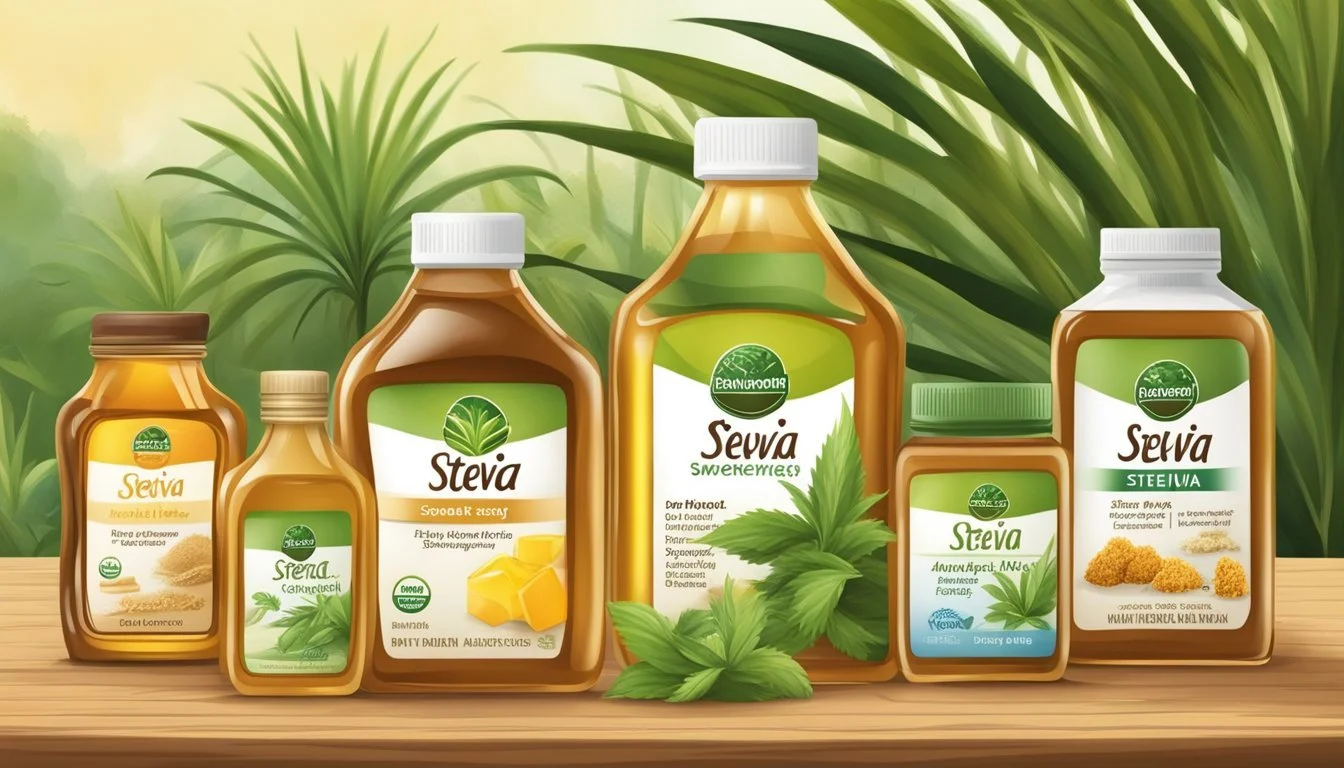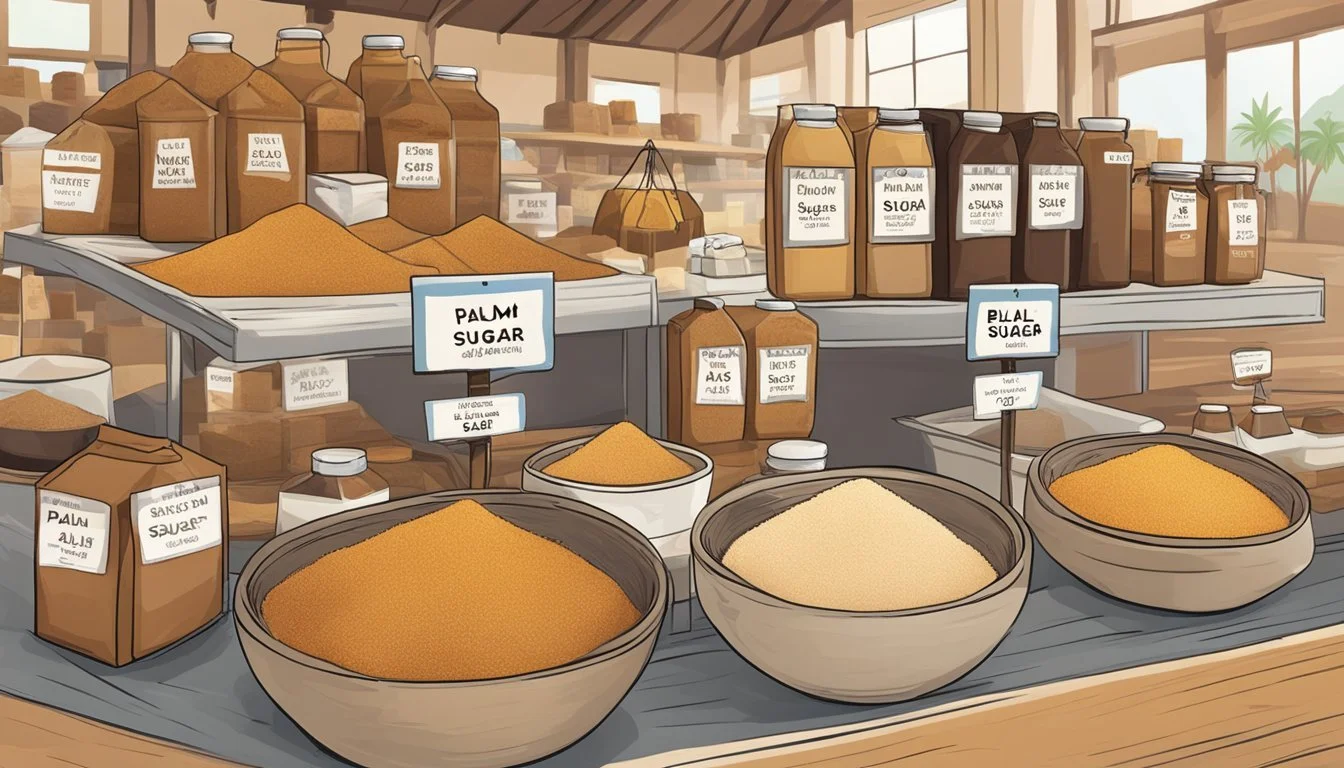Palm Sugar Substitutes
Top Alternatives for Health-Conscious Cooks
Palm sugar, a natural sweetener derived from the sap of various species of palm trees, is a staple ingredient in many traditional Southeast Asian and African cuisines. Its rich, caramel-like flavor is not just limited to enhancing desserts; it also plays a key role in balancing the flavors of savory dishes. However, as versatile as palm sugar is, it may not always be readily available in every kitchen, or suitable for every diet. Consequently, cooks and chefs might seek alternative sweeteners that can replicate its unique taste profile or offer a healthier option without compromising the quality of their dishes.
When searching for substitutes, it’s essential to consider the flavor, color, and moisture content these alternatives bring to the table. Maple sugar, honey, coconut sugar, and dark brown sugar are excellent choices known to provide a similar depth of flavor. For those looking for something readily available and potentially healthier, options like coconut sugar—lauded for its low glycemic index—prove to be favorable. Substituting palm sugar requires an understanding of the recipe at hand and how the alternative will perform both during cooking and in the finished product.
Adjustments may be necessary, as alternatives can differ in sweetness intensity, moisture, and texture. Brown sugar, because of its moisture content and flavor, is often recommended and can be used in a lower quantity due to its higher sweetness level. A combination of white sugar, molasses, and maple syrup can mimic palm sugar quite closely in both taste and appearance. Given that these substitutions could potentially transform the final taste of a dish, careful selection and consideration of each alternative's unique characteristics is crucial for culinary success.
Understanding Palm Sugar
Palm sugar, derived from various types of palm trees, is a natural sweetener prevalent in Southeast Asia's culinary scene. Its appeal lies in its nutritional profile and flavor, offering health benefits tied to its glycemic index.
Origin and Production
Palm sugar is traditionally extracted from the sap of coconut palms or other palm trees found across Southeast Asia. The process involves cutting into the flower bud stem of the palm to collect the sap. This sap is then boiled until it thickens and solidifies into blocks or granular form. The method of production is crucial as it preserves the natural qualities of the sugar, setting it apart from more refined sugars.
Palm Sugar Nutritional Profile
Palm sugar is rich in certain nutrients, such as potassium, phosphorus, zinc, iron, and vitamins, making it more nutritionally dense than refined white sugar. Its lower glycemic index is often highlighted, which means it causes a slower rise in blood sugar levels. Furthermore, it retains a measure of vitamins and minerals that can contribute to its purported health benefits. Here is a simplified table comparing palm sugar to regular white sugar:
Nutrient Palm Sugar White Sugar Glycemic Index Lower Higher Nutritional Value Higher Lower Calories per 100g Approx. 380 Approx. 387
The presence of certain nutrients and a lower glycemic index suggest palm sugar can be a part of a balanced diet when used in moderation.
Common Palm Sugar Substitutes
When seeking alternatives to palm sugar, it’s important to consider the flavor profile and sweetness level of the substitutes to effectively match the original ingredient's characteristics.
Coconut Sugar
Coconut sugar is produced from the sap of the coconut palm and serves as a direct substitute for palm sugar. It replicates the caramel-like taste, with a slight hint of coconut, and can be used in a one-to-one ratio.
Maple Syrup
Maple syrup, derived from the sap of maple trees, offers a unique, rich flavor. Although liquid, it can replace palm sugar, especially in beverages or wet baking recipes. The substitution ratio is typically three-quarters of a cup of maple syrup for each cup of palm sugar.
Honey
Honey, a natural sweetener produced by bees, can be used in place of palm sugar. Its distinct sweetness and fluid consistency make it suitable for dressings and marinades. To substitute honey for palm sugar, use a slightly lesser amount since honey is sweeter than palm sugar.
Molasses
Molasses, a byproduct of sugar cane or sugar beet processing, adds a robust, bittersweet flavor to recipes. It is thicker than palm sugar and can be used to provide a deep, rich taste in baked goods. Use molasses in a ratio of two tablespoons for every tablespoon of palm sugar required by the recipe.
Substitutes for Specific Uses
When looking for palm sugar substitutes, it's important to consider the specific culinary application, as some alternatives may perform better in baking, while others are suited for general cooking. Factors such as texture and color are also essential to achieving a similar end product.
Baking Alternatives
For baking applications requiring a moist texture and deep caramel flavor, molasses is a commendable substitute. It's an effective one-to-one replacement capable of contributing to the moist crumb of cakes and the chewiness of cookies.
Brown Sugar: To maintain a similar density and moistness, brown sugar can be used as a direct substitute for palm sugar. Its flavor profile boasts strong notes of caramel, which makes it an excellent choice for butterscotch recipes or any baked good that benefits from a caramel undertone.
Ratio Replacement 1 tbsp palm sugar 1 tbsp brown sugar
Cooking Alternatives
Asian cooking often capitalizes on the unique flavor and color palm sugar imparts. Here, balance is key.
Coconut Sugar: With a similar flavor profile and appearance, coconut sugar is an optimal choice. It blends well in savory dishes and is particularly effective in creating the nuanced tastes found in Asian cuisine.
Ratio Replacement 1 tbsp palm sugar 1 tbsp coconut sugar
White Sugar, Molasses, and Maple Syrup Mixture: This mixture mimics palm sugar's taste and color closely. It’s especially useful when neither molasses nor coconut sugar is available, as it strikes the right balance between sweetness and color, giving dishes a brown hue akin to that of palm sugar.
Ingredients Ratio White Sugar 1 part Molasses 1 part Maple Syrup 1 part
Health Considerations of Substitutes
When considering substitutes for palm sugar, it is important to evaluate their health impact, particularly their effects on blood sugar levels and nutrient content.
Comparing Glycemic Index
The glycemic index (GI) measures how quickly a food raises blood sugar levels. Substitutes with a lower GI are preferable for those needing to regulate blood sugar levels.
Maple Syrup: Usually has a GI around 54, making it lower than most traditional sugars, but still impactful.
Brown Sugar: Tends to have a GI similar to that of regular sugar as it is essentially white sugar with added molasses.
Jaggery: Often considered to have a slightly lower GI than white sugar due to the presence of molasses, which contains certain minerals.
Calories and Nutrient Content
The calorie count and nutrients in a substitute can influence its healthfulness.
Maple Syrup: Provides approximately 52 calories per tablespoon. It also contains minerals like zinc and manganese.
Nutrient Content per tablespoon Calories 52 Zinc 0.8 mg Manganese 1.3 mg
Brown Sugar: Similar in calorie content to white sugar, providing about 50 calories per tablespoon, with marginal nutrients.
Nutrient Content per tablespoon Calories 50 Nutrients Minimal
Jaggery: Contains approximately 48 calories per tablespoon and a moderate amount of vitamins and minerals like iron and potassium.
Nutrient Content per tablespoon Calories 48 Iron 0.3 mg Potassium 16 mg
Each substitute carries its own profile of glycemic index, calories, and nutrients, which should be considered when making a choice for a healthier diet.
Natural and Processed Sweeteners
When considering alternatives to palm sugar, one can choose from a variety of natural and processed sweeteners. Each comes with distinct characteristics and potential health effects.
Natural Sweetener Options
Jaggery: This traditional Indian sweetener is unrefined and made from either the sap of palm trees or sugarcane juice. It retains trace minerals and vitamins, and it can replace palm sugar at a 1:1 ratio.
Stevia: A zero-calorie sweetener derived from the leaves of the Stevia rebaudiana plant. Stevia is much sweeter than sucrose and does not raise blood glucose levels.
Monk Fruit Sweetener: Extracted from monk fruit, it is a natural sweetener that contains neither calories nor carbohydrates. Monk fruit sweetener is comparable in sweetness to stevia.
Natural Sugars: Present in various fruits and plant-based sources are natural sugars such as fructose and glucose, which are the building blocks of sucrose. These can be utilized as sweeteners in their raw forms but have varying impacts on blood sugar levels.
Processed Sugar Alternatives
Processed sweeteners generally refer to those that have undergone chemical processing to refine or alter their natural state.
White Sugar: Also known as granulated sugar or table sugar, white sugar is refined, crystalized sucrose predominantly extracted from sugarcane or sugar beets.
Fructose and Glucose Syrups: These are highly processed forms of natural sugars and can be found in many sweetened products. They're manufactured by breaking down starches into simpler sugars.
Availability and Cost
When it comes to palm sugar substitutes, consumers need to consider availability in local or online supermarkets and the cost, which can vary depending on the type of substitute and place of purchase.
Sourcing Substitutes
Palm sugar is a popular sweetener in Southeast Asian cuisine, but consumers worldwide can purchase substitutes from a variety of sources. Substitutes such as brown sugar and molasses are widely available in supermarkets. In contrast, more specialized items like jaggery or coconut sugar might be found in health food stores or ethnic markets. For convenience, online marketplaces are a reliable source to buy these sugar alternatives, offering a broad range of options.
Substitute Supermarkets Health Stores Online Stores Brown Sugar Commonly available Available Widely available Molasses Commonly available Available Widely available Jaggery Less common Commonly available Available Coconut Sugar Less common Commonly available Widely available
Comparing Prices
The cost of palm sugar substitutes can differ significantly from one another. Brown sugar tends to be one of the least expensive options, making it a popular choice for those seeking a budget-friendly alternative. On the other hand, substitutes like coconut sugar or molasses might be slightly more expensive due to their production process or organic label status.
Brown Sugar: Typically less expensive; prices can vary depending on brand and quantity.
Molasses: Prices are moderate, with organic options costing more.
Jaggery: This alternative can vary in price, often hinging on geographic origin and purity.
Coconut Sugar: Often more expensive due to its perceived health benefits and sustainability claims.
It's essential for consumers to compare prices among retailers and consider the quantity needed for recipes, as well as the shelf-life of each substitute, to make the most cost-effective decision.







